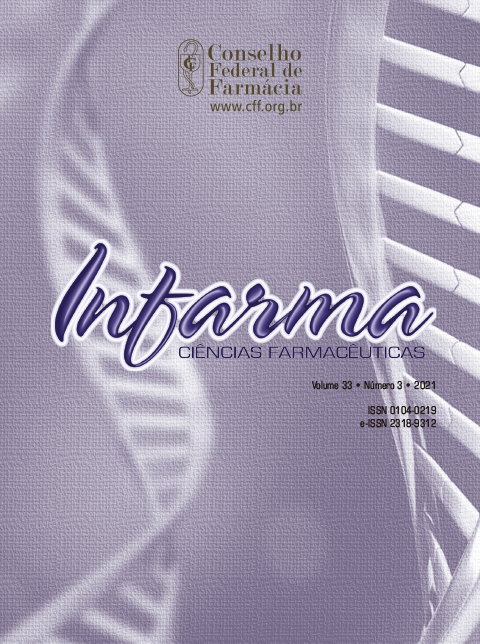INSTRUMENTS AND MODELS FOR STANDARDIZING A PHARMACEUTICAL CLINICAL SERVICE IN A TERTIARY HOSPITAL: CASE STUDY
DOI:
https://doi.org/10.14450/2318-9312.v33.e3.a2021.pp291-300Keywords:
pharmacy service, hospital, drug utilization review, medication reconciliation, pharmacist.Abstract
One of the great challenges for implementing the clinical pharmacy service is the standardization of facilitating instruments to execute the pharmaceutical practice. This study aimed to propose and evaluate instruments developed to assist in implementing a clinical pharmacy service in a large tertiary hospital in Belo Horizonte. It is a case study in which it was proposed to create standardized instruments (flowchart, anamnesis form, and checklist) to implement a clinical pharmacy service in the hospital under study. Due to the institution’s characteristics, it was decided to offer Medicinal Conciliation and Review of Pharmacotherapy services, prioritizing elderly patients with comorbidities. Then, the instruments were evaluated and improved by pharmacists specialized in clinical pharmacy. Finally, they were submitted to evaluation by seven pharmacists from the hospital. All considered it important to standardize models to guide pharmaceutical practice. In addition, most pharmacists found the flow chart useful (71%) and clear (71%). As for the anamnesis form, 71% of the participants considered it clear and declared that they
would use it in their practice. As for the checklist, 86% considered it clear, and 71% would use it. These results indicate that the standardization of instruments can facilitate the implementation of the clinical pharmacy service.
Downloads
Published
How to Cite
Issue
Section
License
Authors who publish in this journal agree to the following terms:
- Authors retain the copyright and grant the journal the right of first publication, with the work simultaneously licensed under the Licença Creative Commons Attribution which allows the sharing of work with acknowledgment of authorship and initial publication in this journal.
- Authors are authorized to take additional contracts separately, for non-exclusive distribution of the version of the work published in this journal (e.g. publish in institutional repository or as a book chapter), with acknowledgment of authorship and initial publication in this journal.
- Authors are allowed and encouraged to publish and distribute their work online (e.g. in institutional repositories or on their personal page) at any point before or during the editorial process, as this can generate productive changes as well as increase the impact and Citation of published work (See O Efeito do Acesso Livre ).


